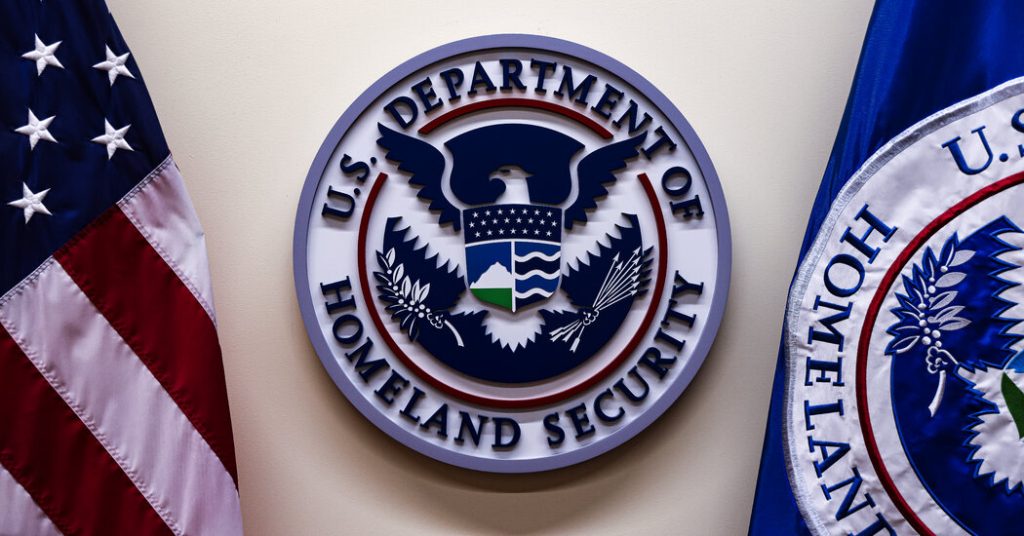For two decades, privacy and civil liberties advocates have worried about the potential for abuse by a small, little-known intelligence agency with broad surveillance powers and a nebulous mandate.
The summer of 2020 did little to allay those fears: Inexperienced intelligence officers from the agency were deployed to Portland, Ore., to compile dossiers on people protesting against police violence. The intelligence officers also produced reports that included names of journalists.
The episode cast a spotlight on the room for overreach in relatively obscure parts of the government, in this instance an agency in the Department of Homeland Security called the Office of Intelligence and Analysis.
On Friday, officials took a parting attempt to outline the agency’s limits on domestic spying, in a bid to curtail potential abuses. It is part of a broader effort by the Biden administration in recent years to strengthen oversight and set clear guidelines for handling intelligence.
The agency was established in 2003 with the mission of assessing terrorists and other threats to homeland security, namely foreign terrorism. But as those threats have evolved to include domestic violent extremism and targeted violence like mass shootings, so have intelligence collection and analysis, expanding the potential exposure — and privacy violations — of American citizens.
To ward against wrongdoing, the head of the agency, Kenneth L. Wainstein, bolstered oversight of its actions.
Now, analysts must write reasonable belief statements to explain why they believe a person is a domestic violent extremist before issuing an intelligence report. An internal document cites examples of what qualifies.
In recent years, the agency has also narrowed its mission by focusing on areas that have less overlap with other intelligence agencies.
As an example, Mr. Wainstein said, “the fentanyl threat is the biggest threat from illegal narcotics to our national security that we’ve ever seen.”
Much of the human intelligence collection that the agency now does, he said, is along the country’s northern and southern borders. Officials there have gathered intelligence from certain noncitizens taken into custody by Customs and Border Protection.
In September 2023, Congress considered revoking some of the agency’s collection authorities over concerns about overreach. But the F.B.I., in a memo to Congress, cautioned that its intelligence work was critical, particularly in keeping adversaries like fentanyl traffickers and foreign intelligence agents in its sight lines.
The F.B.I. asserted that the agency’s interviews had led to the capture or arrests of those in human smuggling networks.
Lawmakers heeded the warning. But, in the latest National Defense Authorization Act, it restricted some of the agency’s other authorities, signaling ongoing skepticism about what the agency does and how it does it.
When the Homeland Security Department was created in 2002, part of the government’s response to the intelligence failures that led to the Sept. 11 attacks, the Office of Intelligence and Analysis was established to ensure state and local officials had the intelligence needed to protect their communities.
But it immediately had to distinguish itself from established intelligence agencies like the C.I.A.
Ten years later, the question remained.
The office “has struggled to find an organizational identity to fit in with the intelligence community and to attain the level of professional competence that the American people are entitled to expect in their government,” Senator Saxby Chambliss, a Republican from Georgia, said in 2014.
Mr. Wainstein, who leaves the department on Monday, said that formalizing the agency’s policy guidelines should help erase some of the mystery of what it does.
Spencer Reynolds, who previously worked as a lawyer at the agency and is now at the Brennan Center for Justice, remained skeptical and described how the agency “operates under lax rules that foster abuse and permit politicized targeting.”
He cautioned that such policies could be discarded quickly.
“Policy is not law, and incoming officials have signaled they want to overturn precedent throughout the government,” Mr. Reynolds said.








